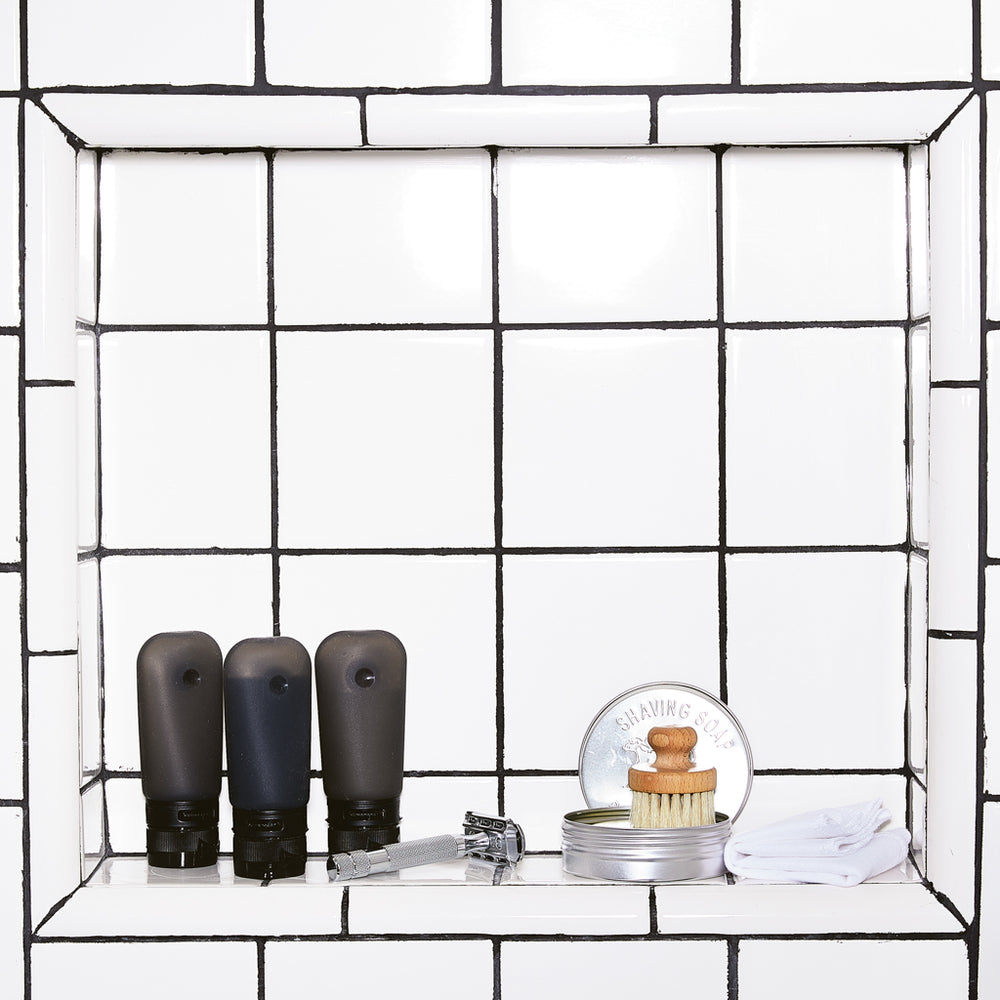After quarantining for over a year, we’re eager to visit family and friends or book a relaxing vacation anywhere but home. If you are planning a trip and looking to stay zero waste, the most eco-friendly option is to skip airplanes and book a trip close to where you live. But being zero waste is not about perfection, and even the most prepared traveler can get thrown off their normal eco-friendly routine. For starters, pre-packaged snacks and meals are super convenient for long travel days. And when you arrive at your destination, will there be access to a recycling or compost bin? Does the locale you’re staying at have the waste infrastructure to process either?
You know what’s not fun? Worrying about how much waste you’re creating while you’re on vacation. It's good to keep in mind that despite your best efforts, you will likely create some garbage during your trip. But, with some preparation and mindfulness, you can reduce your travel footprint and leave (mostly) memories behind.
1. Refuse airline freebies.
From the time we board to the time we land, we can create a small mountain of waste during air travel. Instead of paper boarding passes, download digital tickets onto your phone. Refuse the packaged snacks and disposable cups and bring your own food and water. If you do want a drink, ask for an entire aluminum can versus a plastic cup and ask the steward if the airline recycles. Bring your own headphones for entertainment and earplugs and an eye mask for overnight flights. A thick scarf or jacket can be used as a blanket and will save room in your luggage.
2. Avoid packaged meals.
When we’re on the go, it’s tempting to grab a quick bite or snack. The problem is that it usually comes in plastic packaging. Instead, pack your own meals and snacks and try to keep it as low-waste as possible. For large meals, we love a sandwich wrapped in paper, leftover pizza in tinfoil or a reusable silicone bag and a grain bowl in a stainless steel container. For snacks, homemade popcorn, trail mix or dried fruit bought in bulk, veggie sticks, an apple or mandarin orange all work well. Don’t forget some treats like chocolate or candy bought in bulk. Also, be sure to bring a water bottle to fill up at the airport, a cloth napkin and reusable cutlery.
3. Aim for an empty fridge.
Before you go on an extended vacation, challenge yourself to empty your fridge so no food goes to waste. Also, returning to moldy, rotting foods is never fun. In the week leading up to your trip, be diligent about meal planning and incorporating any leftover fruits, vegetables and other perishable items. Make a soup with the vegetables or roast them to top a bowl or salad. Freeze fruits or blend them into smoothies. Contact friends and neighbors to drop off any remaining food items you don’t end up eating.
4. Plan ahead.
If you’re traveling somewhere new, do some research before you go to discover low-waste options near your destination. Look for bulk shops if you plan to cook meals and farmers markets for local, seasonal ingredients. Find restaurants and street food stands that cultivate local ingredients. Find out if your accommodations offer recycling or compost. Instead of traditional souvenirs, look for thrift or antique shops to purchase fun, low-waste gifts and momentos. Find out if you’re staying somewhere that’s accessible where you can easily walk to local destinations or take public transportation.
5. Pack light.
We want to look fabulous when we're on vacation, which often means we pack more than we need. Try to limit yourself to one carry-on bag to help reduce carbon emissions for air travel. While most of the plane’s weight comes from the plane itself, we can all help lighten the load by packing just the essentials. Stick to a versatile wardrobe that can be worn multiple ways and don’t be afraid to repeat outfits (who will really know or care?). Also, not checking a bag means no plastic luggage tags or waiting around for your bag to arrive at the carousel (as much fun as that is).
6. BYO Toiletries.
Complimentary bottles of shampoo and lotion provided by hotels are tiny and cute, but super wasteful. You can let housekeeping know that you didn’t touch them so they use them for the next guest. Instead, pack bar soap and shampoo in a metal tin or bring liquid versions in reusable silicone tubes. Some eco-friendly brands offer travel size products in sustainable packaging like Plaine Product’s mini shampoo / conditioner in aluminum bottles and David’s toothpaste in a metal travel tube. Solid lotion bars can be helpful for moisturizing and you don’t have to worry about it exploding all over your bag.
7. Skip Hotels.
Hotels tend to waste huge amounts of energy and water, keeping lights on 24/7 and frequently washing linens. You can always skip housekeeping service or request that they don’t wash your towels or sheets for short stays. Another option is to avoid hotels and resorts altogether and rent a home or apartment. Finding a rental with a kitchen is a good option for cooking low-waste meals and you can ask your host if they provide a recycling or compost bin.

